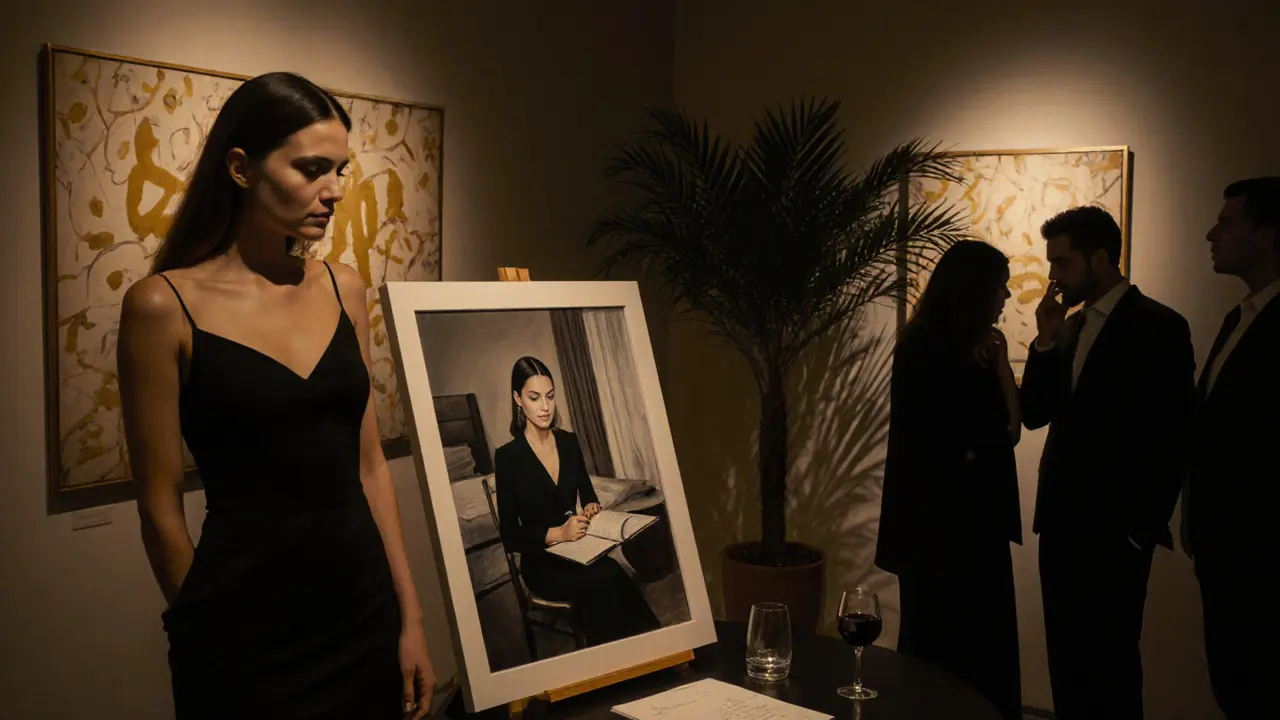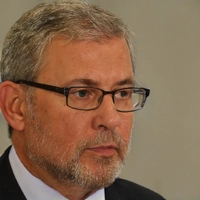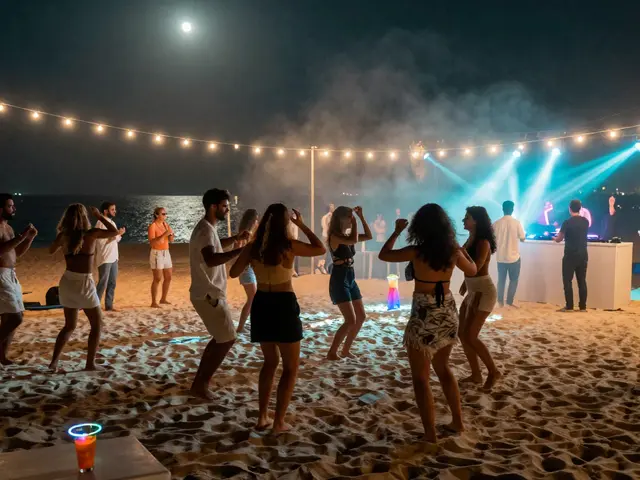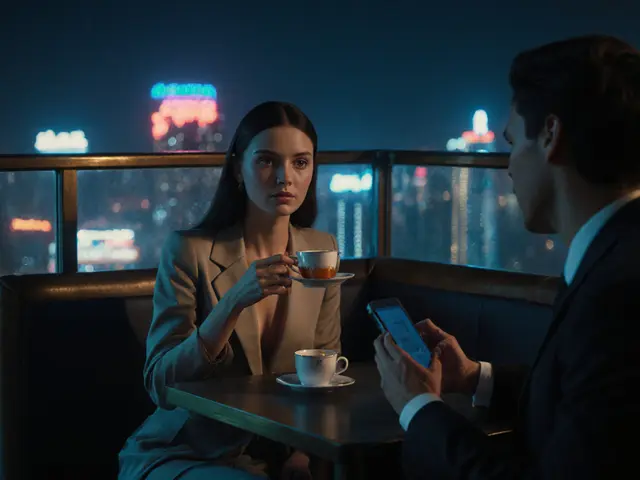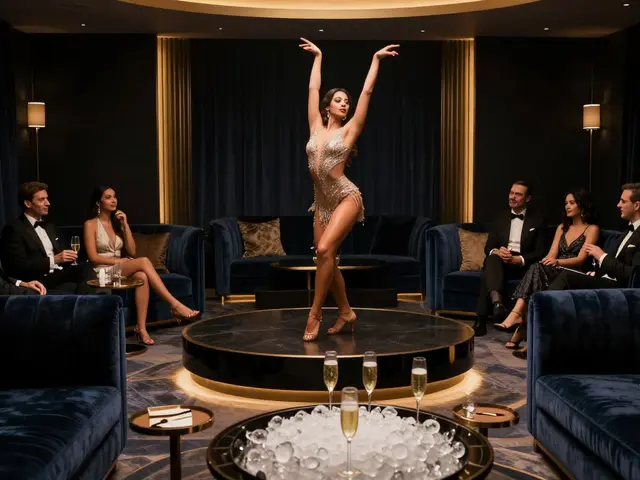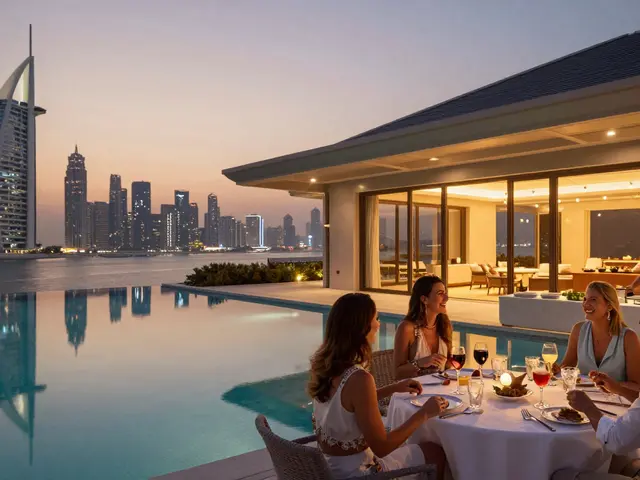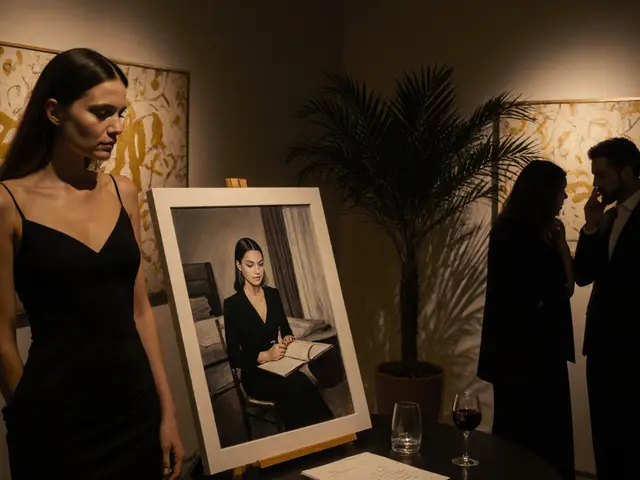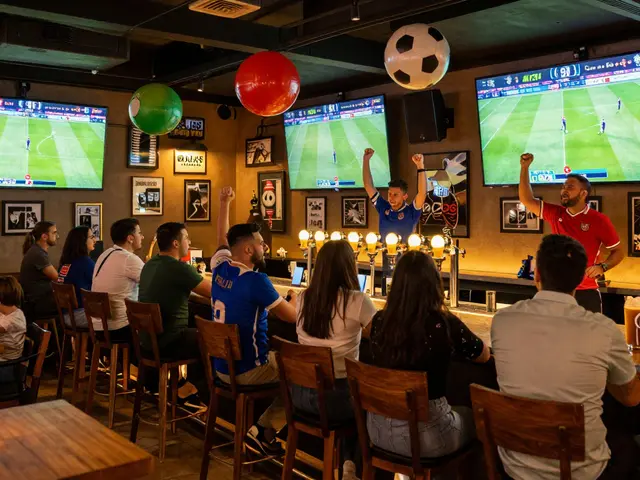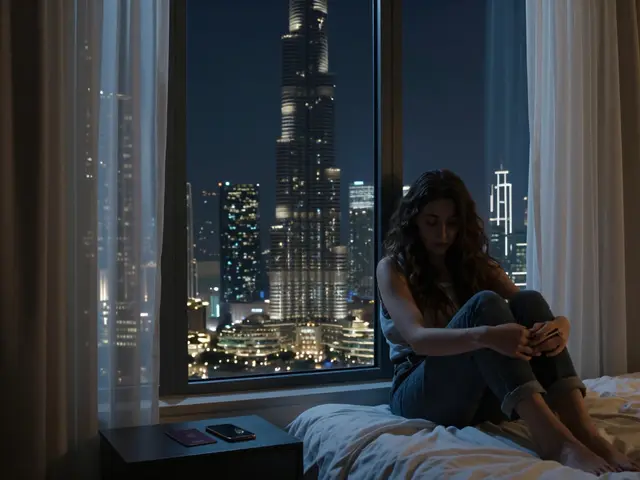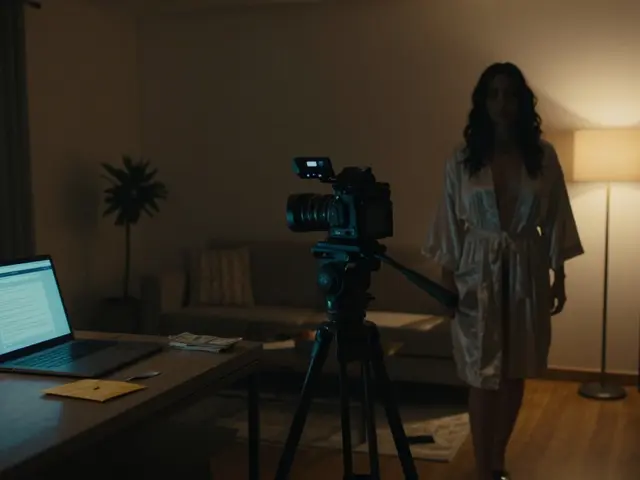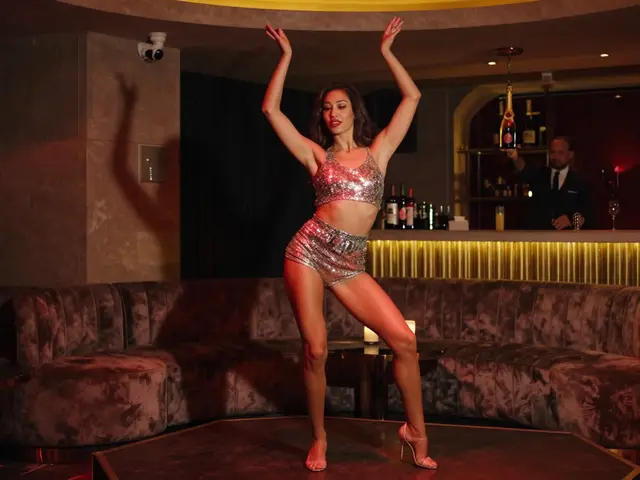Dubai’s art and culture scene doesn’t look like what you’d expect from a city known for skyscrapers and luxury malls. Behind the glitter, there’s a quieter, more human layer-where people from all walks of life come together to create, connect, and express themselves. And yes, that includes the role some escorts play in shaping this space.
Escorts as Cultural Connectors
Most people assume escorts in Dubai are only about physical companionship. But in a city where social boundaries are tightly drawn, many escorts act as cultural bridges. They’re often fluent in multiple languages, well-traveled, and deeply familiar with local customs, global trends, and underground art circles. A client might hire an escort for dinner at a rooftop restaurant, only to discover she’s a former art curator from Berlin who now runs a private gallery in Alserkal Avenue.
These connections aren’t advertised. They’re whispered about in private art openings or over coffee at The Third Line. In a place where expats outnumber locals and socializing across cultures can feel awkward, escorts sometimes fill a gap no formal institution does. They introduce collectors to emerging Emirati artists. They translate the meaning behind a piece of calligraphy-inspired street art. They make people feel seen-not as tourists or transactional clients, but as curious humans.
The Hidden Art Events
Some of Dubai’s most authentic cultural moments happen off the official calendar. Think: a pop-up poetry reading in a warehouse in Jumeirah, a silent film night in a converted Dubai Creek warehouse, or an intimate jazz session in a private villa. These events rarely appear on tourism websites. They’re shared through word-of-mouth, often via networks that include escorts.
Why? Because many escorts have more flexibility than corporate employees. They’re not bound by 9-to-5 schedules. They attend gallery openings on Tuesdays, volunteer at art workshops for underprivileged youth on weekends, and host informal salons in their apartments. One escort, who goes by the name Lila, started hosting monthly literary nights after noticing how few spaces existed for Arabic and English poets to share work together. Now, her events draw writers from Lebanon, Nigeria, and the UAE.
These aren’t charity projects. They’re personal passions. And because escorts often live on the margins of Dubai’s rigid social structure, they’re uniquely positioned to create inclusive spaces where others feel safe to be vulnerable.
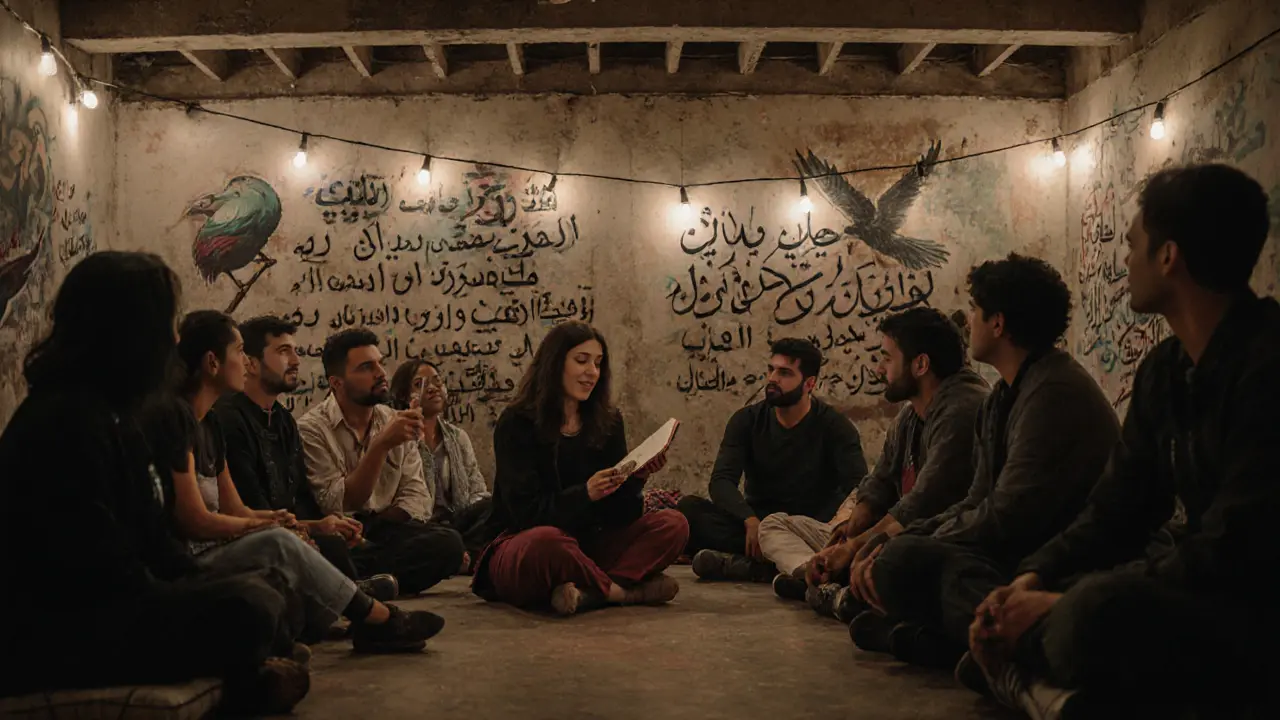
Art That Reflects the Reality
Artists in Dubai aren’t ignoring the escort industry-they’re responding to it. A 2024 exhibition at the Dubai Art Fair, titled “Companionship in the City,” featured portraits of women and men who work as companions, painted by local artists who met them through mutual friends. One piece, called “The Quiet Hours,” showed a woman sitting alone in a hotel room, holding a sketchbook, with a half-written letter to her mother on the table. The artist said she met the subject while volunteering at a support center for migrant workers.
Another installation, “100 Minutes,” invited visitors to sit in a dim room and listen to audio recordings of real conversations between escorts and their clients-edited to remove names and locations. The voices talked about art, loneliness, childhood dreams, and the fear of being judged. The exhibit didn’t sensationalize. It simply asked: Who are these people when no one’s watching?
These works didn’t come from galleries seeking controversy. They came from artists who’d spent time listening. And many of those listening were escorts themselves.
Breaking the Stigma Through Dialogue
Dubai doesn’t officially recognize escort work as a profession. Legally, it’s gray at best, illegal at worst. But that doesn’t stop people from talking about it-in art spaces, in academic circles, even in university seminars on urban sociology.
At the American University in Dubai, a 2023 panel titled “The Invisible Labor of Urban Companionship” featured a former escort as a guest speaker. She didn’t talk about money or clients. She talked about how she learned Arabic by reading poetry with a client who was a retired professor. How she helped a young Emirati artist find funding for his first exhibition. How she became the only person his family trusted to take him to a mental health counselor.
That kind of story doesn’t fit the stereotype. And that’s the point. The more people hear these stories, the harder it becomes to reduce an entire group to a single, reductive label.
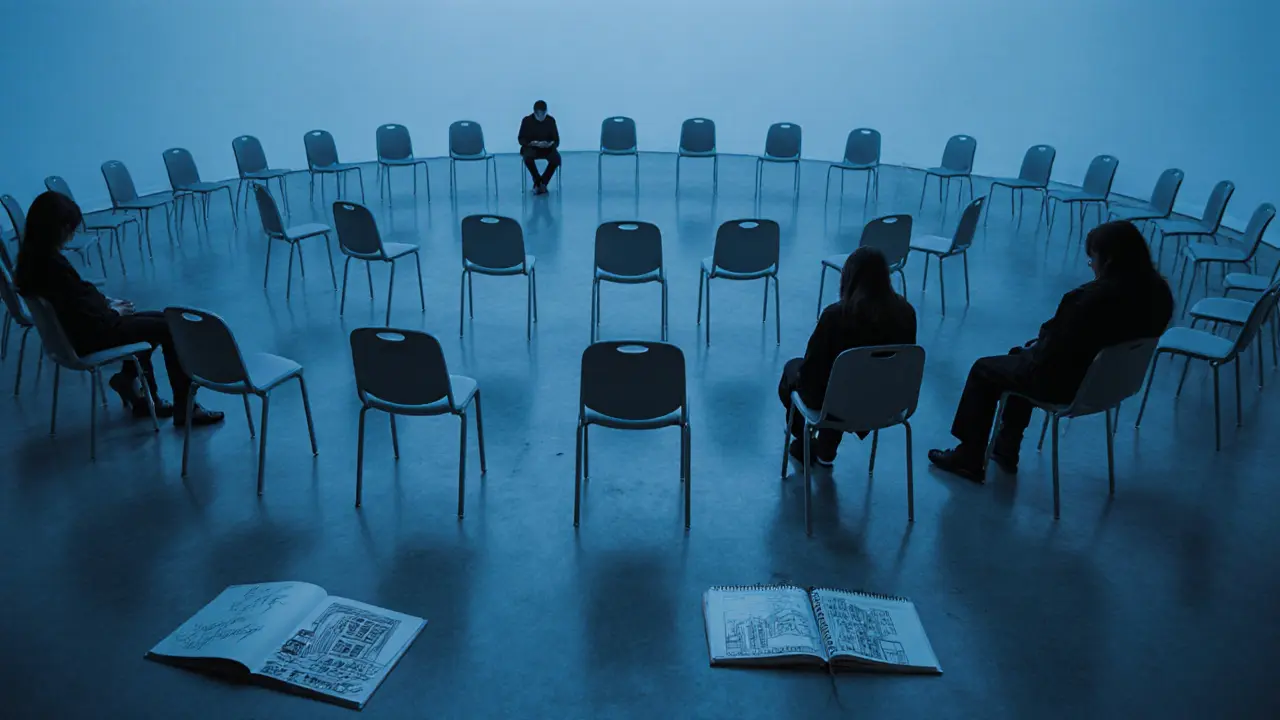
Why This Matters for Dubai’s Future
Dubai wants to be seen as a global cultural capital. It spends billions on museums, festivals, and international collaborations. But culture isn’t just about grand buildings and famous names. It’s about the quiet, everyday acts of connection.
When an escort helps a foreigner understand the symbolism in a traditional Emirati embroidery pattern, that’s cultural exchange. When she introduces a local poet to a Canadian filmmaker, that’s creative collaboration. When she sits with someone who’s never had a real conversation in their own language, that’s emotional labor-and it’s vital.
Dubai’s art scene is growing because people are finding ways to belong in a city that doesn’t always make it easy. Escorts, often invisible in official narratives, are quietly helping to build the social fabric that holds it all together.
What This Means for Visitors and Locals
If you’re visiting Dubai and want to experience its real culture, don’t just go to the Louvre Abu Dhabi or Burj Khalifa. Look for the smaller spaces-the indie bookstores in Al Fahidi, the underground music venues in Al Quoz, the poetry slams in Jumeirah. Ask around. Talk to people who work in hospitality, art, or community spaces. You might hear about someone who’s been quietly shaping this scene for years.
And if you’re a local, recognize that culture isn’t just about heritage. It’s about who gets to participate. The next time you hear someone dismiss escorts as “just companions,” ask yourself: What if they’re also the ones keeping the art alive?
Are escorts legally allowed to work in Dubai?
No, escort work is not legally recognized in Dubai. While companionship itself isn’t explicitly banned, any activity tied to sexual services violates UAE law. Most individuals working in this space operate in a legal gray area, often relying on private arrangements and discretion. Authorities rarely target clients or escorts unless there’s evidence of exploitation or public disturbance.
Do escorts in Dubai contribute to the arts in any official way?
They don’t have formal roles in galleries or cultural institutions, but many privately support artists by buying work, hosting events, or introducing creators to collectors. Some even fund small exhibitions out of pocket. Their contributions are unofficial but real-often filling gaps left by institutions that avoid controversial topics.
Is it common for escorts to have backgrounds in art or education?
Yes. Many escorts in Dubai are highly educated-some with degrees in art history, literature, or international relations. Others worked as teachers, curators, or translators before entering the industry. Economic pressures, visa restrictions, or personal circumstances often lead them to shift careers. Their skills don’t disappear; they just find new ways to be used.
How do locals view escorts in relation to culture?
Public opinion is mixed. Many locals avoid the topic entirely due to social stigma. But among younger, more globally connected Emiratis, there’s growing awareness that people in this industry often have complex lives. Some even see them as unofficial cultural ambassadors-people who help outsiders navigate Dubai’s hidden layers without judgment.
Can tourists meet escorts to learn about Dubai’s art scene?
Tourists shouldn’t seek out escorts for cultural guidance. That’s not their role, and it risks exploitation. But if you’re genuinely interested in Dubai’s underground art scene, attend open studio nights, join local art walks, or connect with independent galleries. Many people who work in this space-including escorts-are happy to recommend authentic experiences if approached respectfully and ethically.
